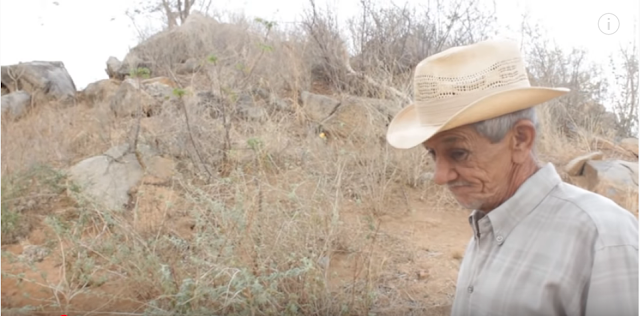The moon and the yew tree / A lua e o teixo
This is the light of the mind, cold and planetary
The trees of the mind are black. The light is blue.
The grasses unload their griefs on my feet as if I were God
Prickling my ankles and murmuring of their humility
Fumy, spiritous mists inhabit this place.
Separated from my house by a row of headstones.
I simply cannot see where there is to get to.
The moon is no door. It is a face in its own right,
White as a knuckle and terribly upset.
It drags the sea after it like a dark crime; it is quiet
With the O-gape of complete despair. I live here.
Twice on Sunday, the bells startle the sky --
Eight great tongues affirming the Resurrection
At the end, they soberly bong out their names.
The yew tree points up, it has a Gothic shape.
The eyes lift after it and find the moon.
The moon is my mother. She is not sweet like Mary.
Her blue garments unloose small bats and owls.
How I would like to believe in tenderness -
The face of the effigy, gentled by candles,
Bending, on me in particular, its mild eyes.
I have fallen a long way. Clouds are flowering
Blue and mystical over the face of the stars
Inside the church, the saints will all be blue,
Floating on their delicate feet over the cold pews,
Their hands and faces stiff with holiness.
The moon sees nothing of this. She is bald and wild.
And the message of the yew tree is blackness - blackness and silence.
Sylvia Plath
*****
Esta é a luz do espírito, fria e planetária.
As árvores do espírito são negras. A luz é azul.
As ervas descarregam o seu pesar a meus pés como se eu fosse Deus,
picando-me os tornozelos e sussurrando a sua humildade.
Destiladas e fumegantes neblinas povoam este lugar
que uma fila de lápides separa da minha casa.
Só não vejo para onde ir.
A lua não é uma saída. É um rosto de pleno direito,
branco como o nó dos nossos dedos e terrivelmente perturbado.
Arrasta o mar atrás de si como um negro crime; está mudo
com os lábios em O devido a um total desespero. Vivo aqui.
Por duas vezes, ao domingo, os sinos perturbam o céu:
oito línguas enormes confirmando a Ressurreição.
Por fim, fazem soar os seus nomes solenemente.
O teixo aponta para o alto. Tem uma forma gótica.
Os olhos seguem-no e encontram a lua.
A lua é minha mãe. Não é tão doce como Maria.
As suas vestes azuis soltam pequenos morcegos e mochos.
Como gostaria de acreditar na ternura...
O rosto da efígie, suavizado pelas velas,
é, em particular, para mim que desvia os olhos ternos.
Caí de muito longe. As nuvens florescem,
azuis e místicas sobre o rosto das estrelas.
No interior da igreja, os santos serão todos azuis,
pairando com os seus pés frágeis sobre os bancos frios,
as mãos e os rostos rígidos de santidade.
A lua nada disto vê. É calva e selvagem.
E a mensagem do teixo é negra: negra e silenciosa.
Sylvia Plath
Trad.: Maria de Lourdes Guimarães


Comentários
Enviar um comentário